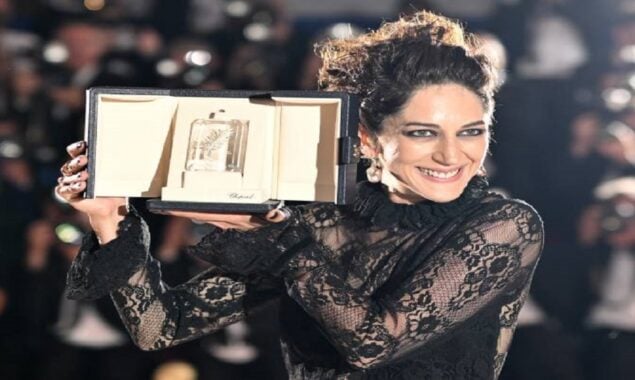
Iran says protests to France over Cannes film selection (Credit: File)
Iran objected to France on Wednesday after the Cannes Film Festival picked a film about a serial killer in Iran who targets se* workers.
“Holy Spider”, directed by Danish-Iranian Ali Abbasi, was nominated in Cannes’ main In Competition category at the festival that was held in the French Riviera resort last month.
Iran’s Zar Amir Ebrahimi won the best actress award for her role as a journalist trying to investigate the murders in the Iranian holy city of Mashhad.
“We formally protested to the French government through the foreign ministry,” Iran’s Culture Minister Mohammad Mehdi Esmaili said on state television.
Read more: Iranian actress, Zar Amir Ebrahimi, wins best actress at Cannes
“We will definitely consider this issue in our cultural exchanges with such governments,” he added, without elaborating.
The festival is not officially linked to the French government.
The selection of “Holy Spider” was “wrong and completely political”, and aimed “to show a dark picture of Iranian society”, Esmaili said.
The Cinema Organization of Iran, affiliated with the culture ministry, lashed out on Monday at the “biased and political” decision to select the movie.
Abbasi was denied permission to film in Iran and “Holy Spider” was eventually shot in Jordan.
The film was inspired by the true story about a working-class man who killed 16 sex workers in the early 2000s in Mashhad, Iran’s second largest city and a main shrine city of Shiite Islam.
In the movie, Amir Ebrahimi tries to unravel the mystery of these murders but is confronted with the toxic masculinity of a patriarchal Iranian society.
The actress’ career was abruptly interrupted in 2006 due to a sex scandal, forcing her to leave Iran for France two years later.
“Holy Spider” was one of two Iranian films competing for the Palme d’Or this year, along with Saeed Roustaee’s “Leila’s Brothers” about a family struggling to fight their way out of poverty in Tehran.
Iran’s culture minister warned of possible “restrictions” on “Leila’s Brothers” since it was shown in Cannes before getting a screening license from Tehran.
“According to the law, films that go to foreign festivals must have a screening license, and the friends, who took the film to the Cannes Film Festival, were told that this would cause legal challenges for the film, and it would face restrictions,” Esmaili said.
“This was told to the director and producer,” the minister told state TV, without elaborating.
Roustaee, 32, had implied in Cannes that the film had yet to be approved for release in Iran.
“Getting a permit to shoot is a very extreme, tedious and long process. Then you need another permit to release the film theatrically and in this process, of course there is censorship,” he told AFP at the festival.
Iran has a long and distinguished film history, with masters such as Abbas Kiarostami, who won the Palme d’Or in 1997, and Asghar Farhadi, who has twice won an Oscar for best foreign language film and served on the Cannes jury this year.
Read more: Iran rejects Cannes movie award as ‘biased, political’
Read More News On
Catch all the International News, Breaking News Event and Latest News Updates on The BOL News
Download The BOL News App to get the Daily News Update & Follow us on Google News.




